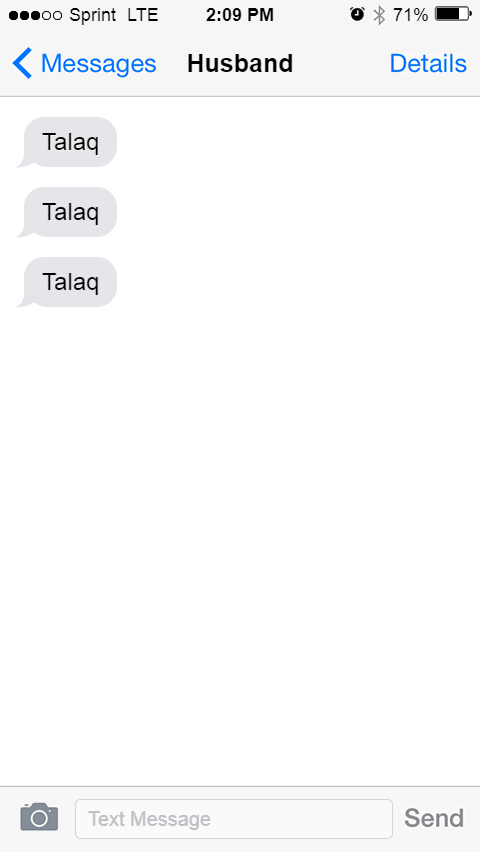by Heysha Garcia

On August 22nd 2017, India declared the Islamic Instant Divorce as unconstitutional and “un-Islamic”. The Islamic Instant Divorce consists of a Muslim man telling his wife “Talaq” three times over text, letter, or verbally etc., that is equal to there being a divorce in place.
Many muslim women have spoke out about this, including Afreen Rehman, Shayara Bano, Ishrat Jahan, Atiya Sabri, and Gulshan Parveen. These ladies all have different stories on how or what happened during the divorce, but they all have one thing in common. They didn’t have any say in the divorce or have any time to prepare. Their children get taken away from them and these women are left behind with no future.
Three out of the five judges voted against Triple Talaq. Two of the judges declared it to be “unconstitutional”, but refused to involve Islamic Law in their decision. The third judge said that it is both “unconstitutional” and “un-Islamic”. One of the judges, Chief Justice JS Khehar, doesn’t agree with the matter being taken to court. He believes that, because it is personal, it shouldn’t be allowed to go through the legal system.
The fight against triple talaq started February 5, 2016. On June 29, 2016, the Supreme Court decided to find out whether or not this practice was acceptable. May 11 through May 17, 2017, were spent deciding if the practice was necessary to Muslim’s religious practices.
This is a huge step to equality for Muslim women, but now for some women like, Nazia Elahi Kahn, this has made it slightly harder. She is receiving threats and some people are even attempting to turn her child against her. She isn’t even safe in her own home. Her lawyer is also receiving threats and insults on social media, this does not compare to Nazia’s struggle. Nazia needs to be taken to a place of security because of the fact that her life is endangered. Her husband’s older brother and his wife are abusing her and, supposedly, they have cut off her electricity.
Declaring the “Instant Divorce” practice as unconstitutional is a huge step for women, but there are more hurdles for these brave women to go through. Not everyone agrees with this judgement, and they blame the women who spoke up against the wrongful treatment.
Sources:
- http://www.bbc.com/news/world-asia-india-40897519
- http://www.bbc.com/news/world-asia-india-41008802
- http://www.ndtv.com/india-news/after-winning-triple-talaq-case-bengal-woman-faces-another-battle-1742196
- http://www.hindustantimes.com/india-news/triple-talaq-case-live-updates-supreme-court-on-muslim-divorce-practice/story-QcNCsaZDkvkgTcWJ02GPcK.html
